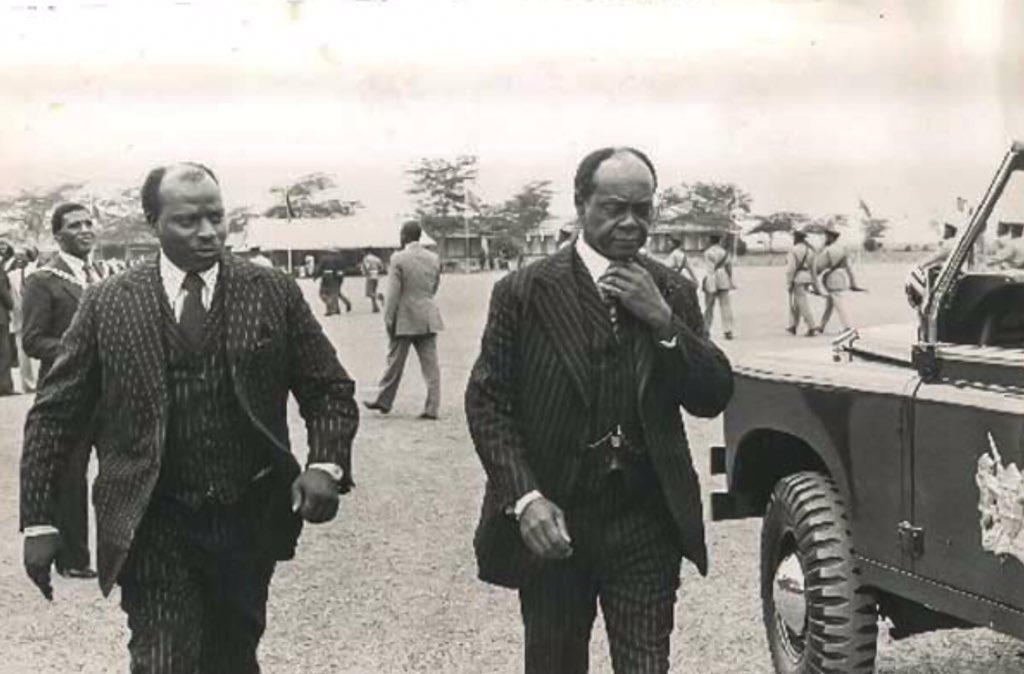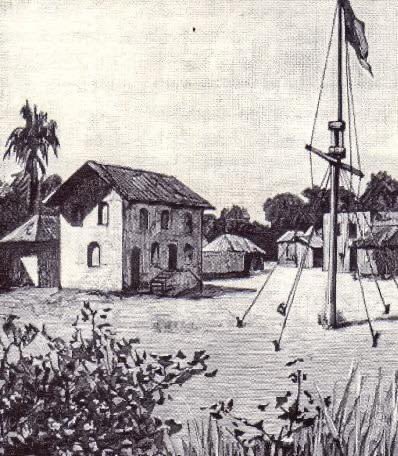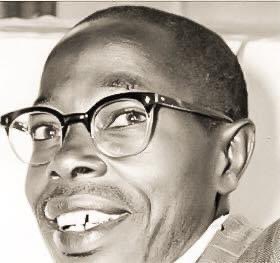#HistoryKeThread In Mzee Kenyatta’s sunset days, there was a daring cabal of powerful individuals who were determined to stop his Vice President Moi from taking over the reins of leadership. 

Indeed, these vey leaders in September of 1976 played host to a large anti-Moi political rally in Nakuru. During the rally, speaker after speaker called for the Constitution to be changed.
They wanted provisions that made it possible for the Vice President to automatically take over the presidency repealed.
Of course, the focus was on Moi. The Change-The-Constitution movement was scheming to scuttle Moi’s automatic succession.
Of course, the focus was on Moi. The Change-The-Constitution movement was scheming to scuttle Moi’s automatic succession.

No fewer than 20 MPs - mostly drawn from GEMA tribes, attended the rally. Among speakers at the rally, which had been organized by fiery politician Kihika Kimani, were Dr. Taitta Towett (pictured), James Gichuru... 

...Njenga Karume, Jackson Angaine, Paul Ngei, Dr. Njoroge Mungai and several MPs from the Abagusii community.
Surprisingly, Achieng Oneko, who was Oginga Odinga’s ally, also attended.
Surprisingly, Achieng Oneko, who was Oginga Odinga’s ally, also attended.
Using innuendoes, the MPs lashed out at Attorney General Charles Njonjo and Chief Secretary Kîereini, who were disliked for being Moi sympathizers.
Moi, the politicians argued, was unfit to be President.
Moi, the politicians argued, was unfit to be President.
Other than Njonjo (R) and Kiereini (L), Vice President Moi had other allies. These included Mwai Kibaki, Robert Matano, Shariff Nassir and Stanley Oloitiptip. 

Author Charles Hornsby claims in his book that Central Provincial Commissioner Simeon Nyachae was also seen as a Moi sympathizer. As PC, he used his position to deny the Change-The-Constitution group licenses to hold political rallies in the province. 

The anti-Moi forces were so powerful that they used senior police officers to humiliate the then Vice President, who displayed much stoicism.
At road blocks mounted on various roads in and around Nakuru targeting Moi’s motorcade, the VP was humiliated by police officers led by James Mungai, who was at the time the Rift Valley police boss. Some claim that Moi...
....was reportedly physically assaulted by Mr. Mungai on at least one occasion.
The police docket was previously under Moi’s Ministry of Home Affairs. The acts of humiliation began soon after the police and internal security docket was moved to the Office Of The President.
The police docket was previously under Moi’s Ministry of Home Affairs. The acts of humiliation began soon after the police and internal security docket was moved to the Office Of The President.
Mzee Kenyatta did not lend support - at least openly - to the Change-The-Constitution movement. It is arguably for this reason that the plot to scuttle Moi’s ascension to the presidency fell flat after Mzee’s death in 1978. 

In a twist of irony, Charles Njonjo, the man who almost singly supervised Moi’s swearing-in in accordance with Kenya’s Constitution, would later on be hounded out of government in ignominious circumstances by the former teacher-turned President. 

• • •
Missing some Tweet in this thread? You can try to
force a refresh














